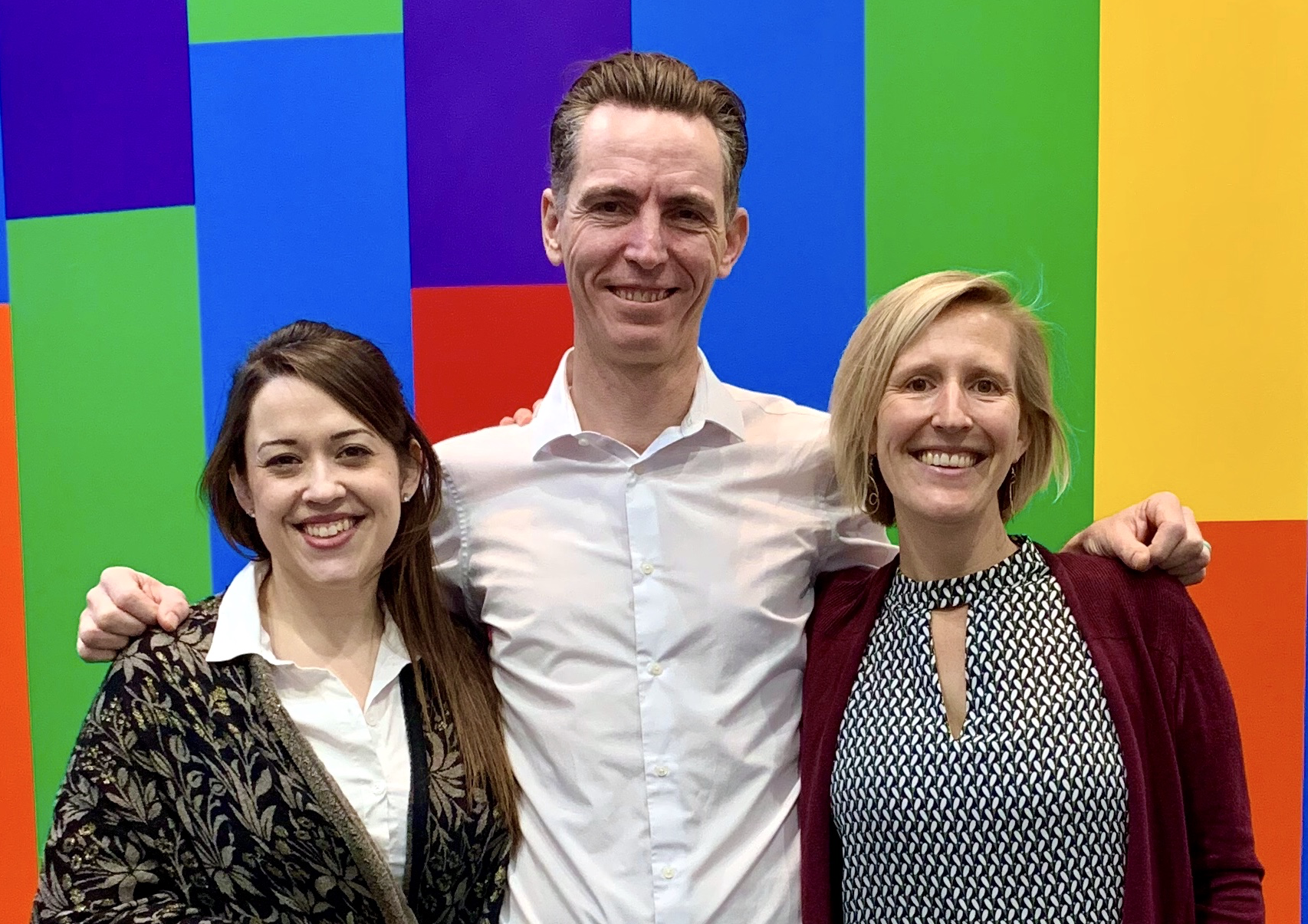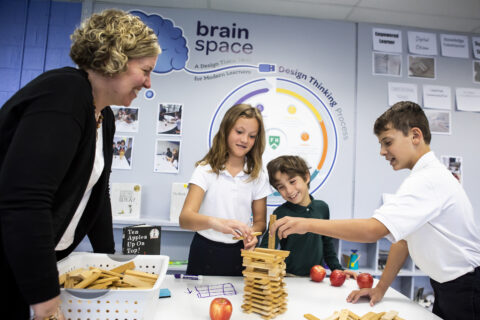The Center for Transformative Teaching and Learning emphasizes applying Mind, Brain, and Education Science principles as a journey for teachers. The same goes for developing, conducting, and evaluating an action research project. Daphne Clyburn and Sara Graham, CTTL Omidyar Faculty Fellows and St. Andrew’s language teachers, recently shared their action research journeys with foreign language educators from around the country at the American Council on the Teaching of Foreign Languages (ACTFL) Annual Convention and World Languages Expo in Washington, D.C.
Clyburn, who teaches Spanish and also presented earlier this year at the Greater Washington Association of Teachers of Foreign Languages conference, spoke from the perspective of an educator just beginning an action research project, a research method designed to help teachers resolve classroom problems or weaknesses.
She started designing her research question by identifying a need in her classroom. For Clyburn, increasing student engagement was a priority.
“The CTTL does a great job of helping you phrase your research question – ‘Will ‘x’ help my students do ‘y’?’” she said. “My question is, ‘Will a culture-focused language class, as opposed to a grammar-focused language class, help with student engagement?’”
The next step for Clyburn is to operationalize the research by defining how she will measure student engagement. She emphasized that, while operationalizing research can sound overwhelming, there are many ways to go about it, whether it’s providing students with a survey that already exists or designing one unique to the study.
“It’s not a perfect process and there are bumps along the way, and that’s okay,” Clyburn said. “For me, it doesn’t all have to go one way. You can make it your own and still learn things about your teaching and improve.”
Graham, who teaches Mandarin, completed her action research project during the 2018-2019 school year. She investigated her research question – whether or not providing choice in the curriculum boosted student engagement and motivation – by assigning students to test groups and control groups during “deep dive” units in her Mandarin 2 and 3 classes.
After performing a statistical analysis of motivation scores from a survey her students completed, Graham found that her method provided a point for effect size and that students did feel more motivated during the units in which they had choice.
“As a field of study, I think we’re struggling with what’s best for the student in terms of interest, motivation, and passion and what people think is needed to know the language,” she said. “[My action research] supports my theory that, if we get comfortable with not knowing everything students are learning and it’s more related to them and their own interests and we’re there as scaffolding agents, they will become more intrinsically motivated, even if it’s a required class.”
Clyburn and Graham’s presentation got a boost from Dr. Ian Kelleher, Head of Research for the CTTL, who gave attendees a quick overview of Mind, Brain, and Education Science and action research.
Graham and Clyburn agreed that designing an action research project is a powerful way to step back from their day-to-day classroom experience and realize how they can strengthen and improve their teaching practice.
“I hope in my classes that my students develop an appreciation of and love of learning languages, so they want to continue taking them at St. Andrew’s and beyond,” Clyburn said. “I think both of our research designs come from that desire, both with choice and engagement, and this question of how we can promote language learning at St. Andrew’s.”




